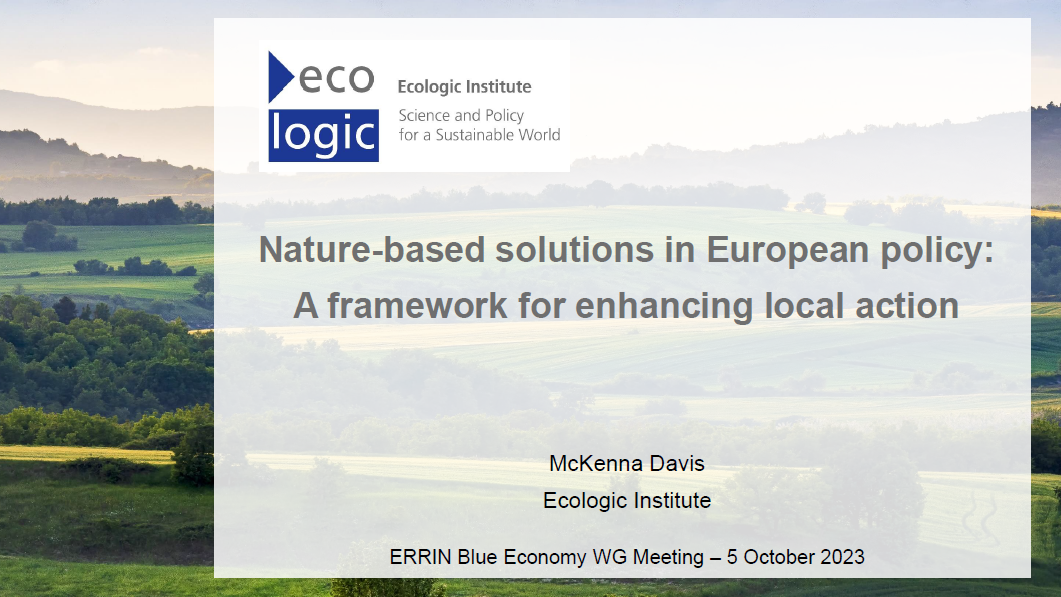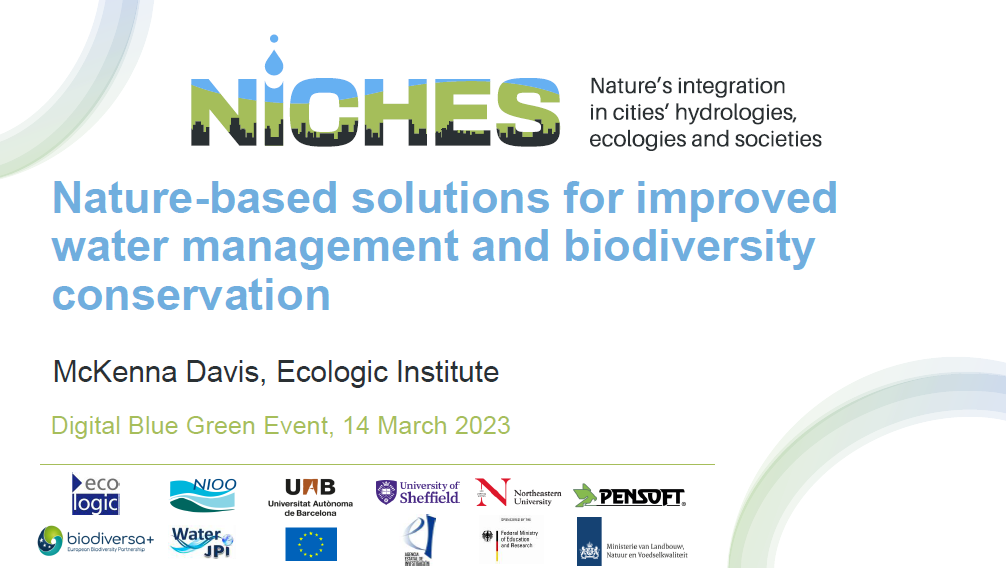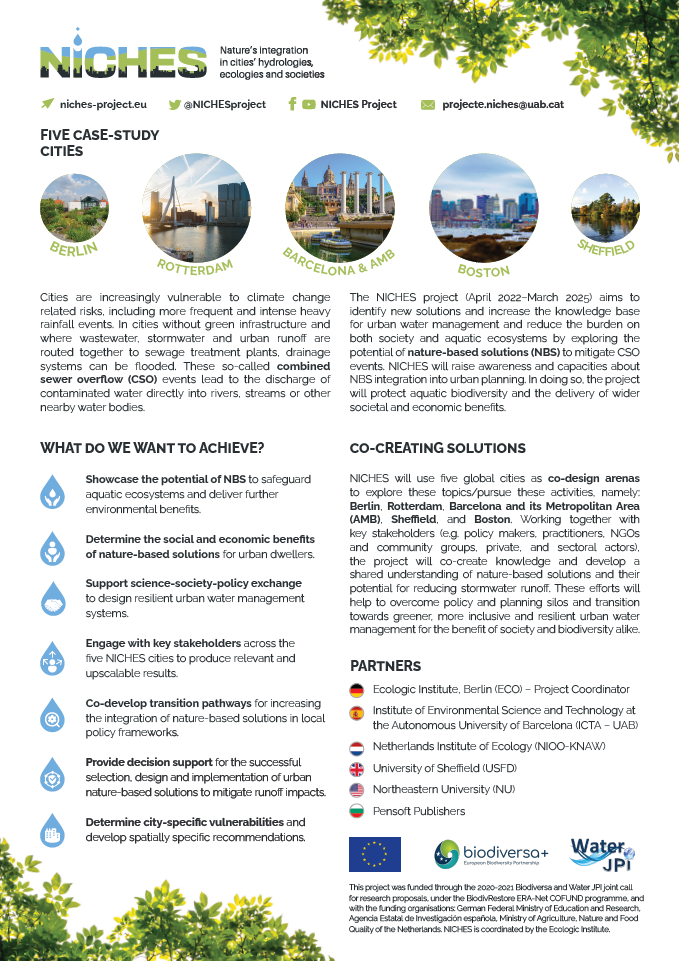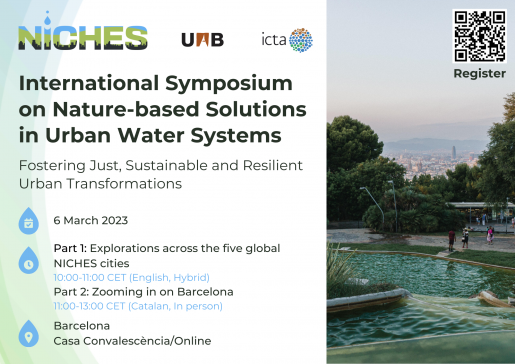Sitting in Our Own Soup? Combined sewers, climate change and nature-based solutions for urban water management in Berlin
- Publication
- Citation
Wild, Tom; Gregory Fuchs & McKenna Davis (2024) 'Sitting in our own soup? Combined sewers, climate change and nature-based solutions for urban water management in Berlin' Nature-Based Solutions 5 (2024), p. 10113. doi:10.1016/j.nbsj.2024.100113.
Urban water management is facing new challenges due to climate change. Intensified precipitation is putting additional stress on stormwater systems, leading to increased flood risks, more frequent combined sewer overflows (CSOs), and resultant risks to public health and urban biodiversity. These topics are addressed in a new publication co-authored by Gregory Fuchs and McKenna Davis of Ecologic Institute entitled 'Sitting in our own soup? Combined sewers, climate change and nature-based solutions for urban water management in Berlin'.
Written within the NICHES project coordinated by Ecologic Insitute, the article focuses on the city of Berlin to examine the impacts of urban stormwater management and CSOs and the role nature-based solutions (NbS) can play in managing negative impacts. Berlin's stormwater infrastructure, particularly the combined sewer network in inner-city areas, has been struggling with the impact of CSO events, particularly untreated wastewater pollution entering the city’s water bodies. The study combines literature reviews with stakeholder interviews. A key focus is on identifying innovative practices in CSO management and governance, while also capturing the shifting public values and perceptions regarding urban water management and success measures for evaluating various approaches. It investigates what outcomes are considered beneficial or problematic, which benefits should be maximised, and which adverse impacts need mitigation. Drawing on insights from Berlin – a city renowned for its innovative and ecologically sustainable practices, the study offers a set of recommendations to guide city stakeholders in developing more comprehensive assessments of the impacts of combined sewer systems and the effectiveness of stormwater management practices.
Key findings
- Governance and management: Collaborative efforts in Berlin have led to the progressive integration of NbS in urban water management, despite challenges such as budget constraints and loss of expertise. Evaluating the effectiveness of governance structures and stakeholder collaboration plays a crucial role in implementing successful NbS. Ensuring equitable access to green infrastructure is a significant factor in evaluating these solutions' success.
- Innovations in CSO management: Traditional urban stormwater practices, including gray engineering solutions, are increasingly inadequate for addressing CSOs and other climate change impacts. The implementation of effective NbS, such as green roofs and sustainable urban drainage systems (SUDS), presents a viable alternative. These solutions play a crucial role in absorbing and managing stormwater sustainably. They reduce the risk of overflow events, improve urban resilience to flooding, and mitigate pollution from CSO events. Moreover, they offer multiple co-benefits, such as promoting biodiversity, enhancing ecological integrity, aiding in carbon sequestration, climate regulation, and improving water quality.
- Public perception: There is growing awareness and demand among Berlin's residents for improved water quality and sustainable management practices.
- Multifunctional approaches and broader measures of success: There is a need to consider ecological, social, and economic impacts and adopt broader measures of success beyond conventional flow and spill metrics to evaluate the effectiveness of NbS (considering e.g. flood mitigation, stormwater management, water quality, energy efficiency, sustainability, urban biodiversity, community engagement).





